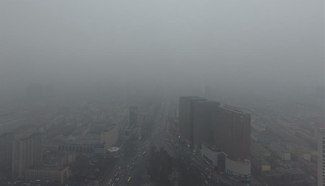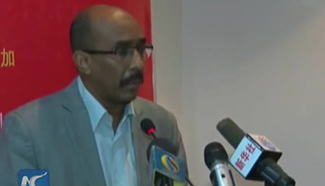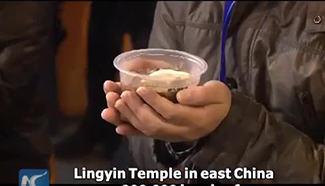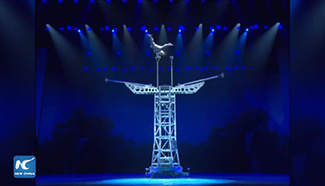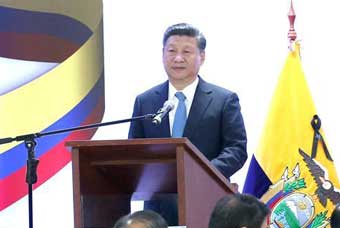by Xinhua writer Xia Lin
MEXICO CITY, Jan. 5 (Xinhua) -- Mexico faces daunting challenges at home and abroad in the new year, as the government's effort to trim gasoline policy encounters widespread protests, and the relationship with the upcoming new U.S. administration is full of uncertainties.
Protests have occurred in 11 states of Mexico, with 34 major roads or highways blocked, since the government-initiated gasoline deregulation measure took effect on New Year's day and has triggered a 20-percent price hike ever since, an official source said Thursday.
Media reports said at least 250 stores across seven states have been sacked, as gas prices continue rising.
The National Association of Self-Service and Department Stores of Mexico also confirmed Wednesday that 79 stores were looted and 170 closed or blockaded merely in central Mexico.
"It is not the right way to express themselves. There are other ways aside from looting and road blocking. I think we need political actions," Sergio Ampudia, a lawyer in Mexico City, told Xinhua.
The New Year started in Mexico with uneasiness, although President Enrique Pena Nieto defended his policy on Wednesday, saying: "(Gasoline deregulation) is a responsible and consistent measure, as I have defined it as a priority of my government to preserve the economic stability of our country."
The hike is part of a gradual, year-long price liberalization the Nieto administration has promised to implement this year, in reaction to the decrease of domestic supply and an expected rise of imports.
Meanwhile, Mexico is mulling how to deal with unexpected policy changes of a new U.S. government.
According to reports, the second largest U.S. auto maker Ford on Tuesday scuttled its 1.6-billion-U.S.-dollar investment in Mexico and kept it at homeland instead, under consistent browbeat of U.S. President-elect Donald Trump.
This means a loss of 3,600 jobs for Mexico and a further devaluation of its currency peso.
"It is serious. It is difficult, very difficult... The gas price increase and the cancellation of investment affect all our pockets and the whole economy. It has multiple effects," Mario Ramirez, a retiree in Mexico City, told Xinhua.
Besides taming Ford, Trump also aims for the General Motors and even threatened Toyota on Thursday to "build plants in the U.S. or pay big border tax," over a concern that the companies' vehicles manufactured in Mexico were exported to the U.S. market.
Throes began to set in, even two weeks before Trump is sworn in as the president of Mexico's immediate neighbor and traditional foremost benefactor. His prepared plan to build a wall along the border to stem immigrants and renegotiate or even withdraw from the North American Free Trade Agreement, which used to absorb 80 percent of Mexico's annual exports, will make matters worse.
"It will be very difficult. Finally, Trump is already giving the signals of what is going to happen. More people will go unemployed. Mexico will see more unemployment, as many more are returning (from the United States)," Fred Fernandez, a financier in Mexico City, told Xinhua.
At its historical low of popularity, Nieto's government has wasted no time to react, calling back former Finance Minister Luis Videgaray to serve as foreign minister.
Videgaray resigned in September for masterminding Trump's pre-election visit to Mexico in August, but now returns in triumph with the responsibility to negotiate with the United States on immigration, security and trade issues.
"Before the change of government in the U.S. on Jan. 20, the installation of Videgaray is to accelerate the dialogue and contacts, so that from the first day of the new (U.S.) administration, the bases can be established for a working constructive relationship," Nieto told reporters while swearing in Videgaray on Wednesday.
Over the string of hard nuts the government has to crack at the beginning of 2017, Mexico's daily newspaper El Universal said in its editorial: "Mexico loses thousands of jobs with no word on a clear strategy for confronting the next U.S. government which has presented itself as protectionist and, especially, anti-Mexican."
Now, with Videgaray back in the saddle, such a clear strategy can be shaped, but it remains to be unknown whether and when that can happen.
According to media reports, Videgaray, an economist trained at the Massachusetts Institute of Technology (MIT), enjoys friendship with family members of Trump, who once praised the close confidant of Nieto as "a brilliant finance minister."
"Videgaray would be the closest man or could open certain channels of communication (with the United States). Then, it seems to me it is a bad choice, but nevertheless necessary," said lawyer Sergio Ampudia.




